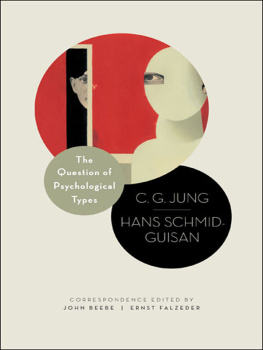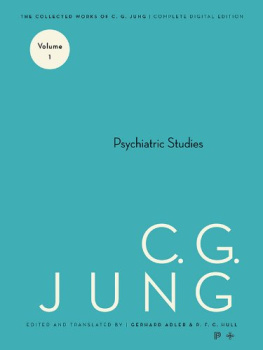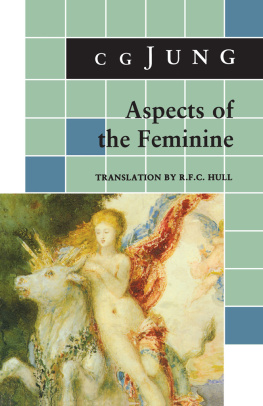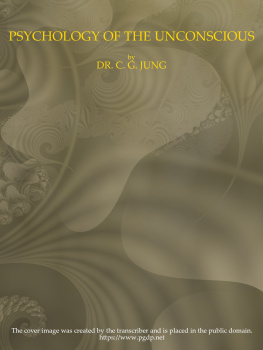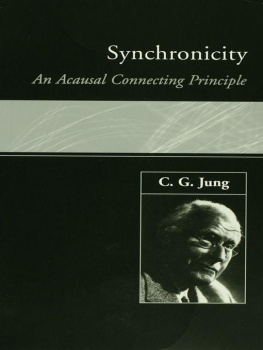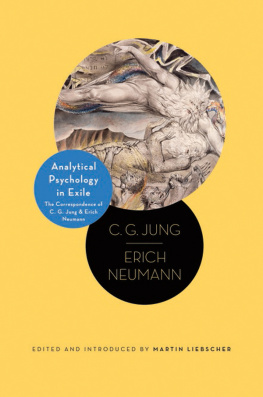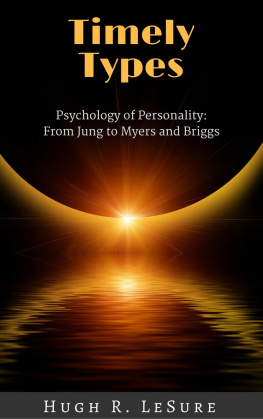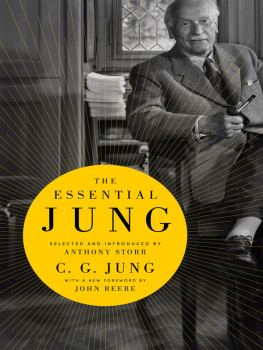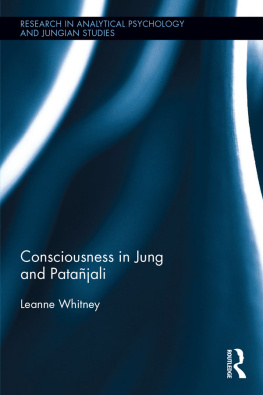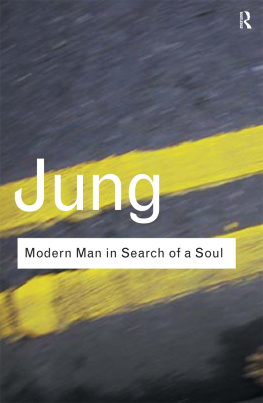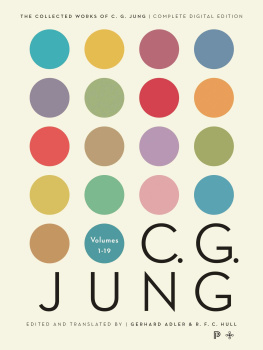
The Question of Psychological Types
The Question of Psychological Types
The Correspondence of C. G. Jung and Hans Schmid-Guisan, 19151916
EDITED BY JOHN BEEBE AND ERNST FALZEDER
TRANSLATED BY ERNST FALZEDER WITH THE COLLABORATION OF TONY WOOLFSON

PUBLISHED WITH THE SUPPORT OF THE PHILEMON FOUNDATION
THIS BOOK IS PART OF THE PHILEMON SERIES OF THE PHILEMON FOUNDATION
PRINCETON UNIVERSITY PRESS
Princeton and Oxford
Copyright 2013 by Princeton University Press
Requests for permission to reproduce material from this work should be sent to
Permissions, Princeton University Press
Published by Princeton University Press,
41 William Street, Princeton, New Jersey 08540
In the United Kingdom:
Princeton University Press,
6 Oxford Street,
Woodstock, Oxfordshire OX20 1TW
press.princeton.edu
Jacket design by Kathleen Lynch/Black Kat Design.
Jacket illustration: Face in the Door by Jean-Franois Martin. Courtesy of Marlena Agency.
All Rights Reserved
Library of Congress Cataloging-in-Publication Data
The question of psychological types : the correspondence of C. G. Jung and Hans Schmid-Guisan, 19151916 / edited by John Beebe and Ernst Falzeder; translated by Ernst Falzeder with the collaboration of Tony Woolfson.
p. cm. (Philemon series)
Includes bibliographical references and index.
ISBN 978-0-691-15561-6 (hardcover : alk. paper 1. Jung, C. G. (Carl Gustav), 18751961Correspondence. 2. Schmid-Guisan, Hans, 18811932Correspondence. 3. PsychoanalystsEuropeCorrespondence. I. Beebe, John. II. Falzeder, Ernst.
BF109.J8Q84 2013
155.2664dc23
2012019327
British Library Cataloging-in-Publication Data is available
This book has been composed in Sabon LT Std
Printed on acid-free paper.
Printed in the United States of America
10 9 8 7 6 5 4 3 2 1
Contents
John Beebe and Ernst Falzeder |
Acknowledgments
THE EDITORS WOULD LIKE TO THANK:
The Foundation of the Works of C. G. Jung; its director, Ulrich Hoerni; president, Daniel Niehus; and board members Christine Benz, Eric Baumann, and Felix Walder
The Philemon Foundation; its cofounder and general editor, Sonu Shamdasani; editor, Tony Woolfson; board members Nancy Furlotti, Judith Harris, Eugene Taylor, Caterina Vezzoli, and Beverley Zabriskie
Jungs daughter Helene Hoerni-Jung and Schmids grandson Florian Boller, who graciously consented to informal interviews
Hans Konrad Iselin, whose German edition of these letters was frequently consulted
Princeton University Press, especially Fred Appel, Sarah David, Brian MacDonald, and Terri OPrey
Readers Geoffrey Cocks and Adam Frey for advice and technical assistance
The Swiss Federal Institute of Technology (ETH), for access to the C. G. Jung Archive
Thanks also to the community of translators forum at http://dict.leo.org/forum/.
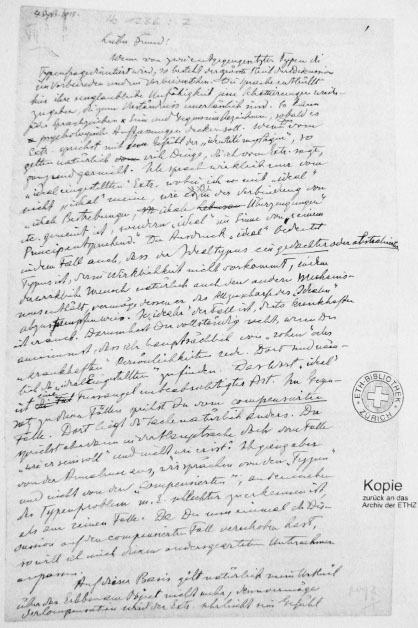
First page of 7 J, 4 September 1915
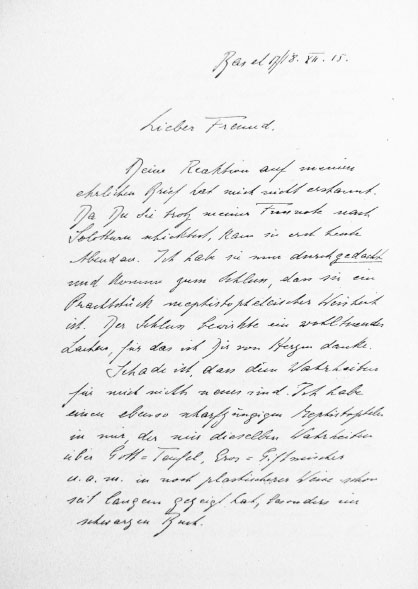
First page of 12 S, 17/18 December 1915
Introduction
by John Beebe and Ernst Falzeder
JUNGS PSYCHOLOGICAL TYPES appeared in 1921 to widespread acclaim and received many laudatory reviews.the topic in 1913 or how his work on typology intersected with the self-experimentation he termed his confrontation with the unconscious, critical details of which have recently emerged with the publication of Liber Novus, his so-called Red Book (2009). A vital piece of the puzzle lies in the present correspondence.
Its very first sentence, written by Jung on 4 June 1915, reads: As you know from our previous talks, for the past few years I have occupied myself with the question of psychological types, a problem as difficult as it is interesting. Jungs occupation with this topic has indeed a long prehistory. As he went on saying in his letter to Schmid: What originally led me to that problem were not intellectual presuppositions, but actual difficulties in my daily analytical work with my patients, as well as experiences I have had in my personal relations with other people. Five years later, he stated in Psychological Types: This book is the fruit of nearly twenty years work in the domain of practical psychology. It grew gradually in my thoughts, taking shape from the countless impressions and experiences of a psychiatrist in the treatment of nervous illnesses, from intercourse with men and women of all social levels, from my personal dealings with friend and foe alike, and, finally, from a critique of my own psychological peculiarity (1921, p. xi).
Repeatedly, Jung also mentioned another crucial motive for his interest in the type problem, for instance in his 1943 edition of On the Psychology of the Unconscious, where he wrote of the dilemma into which he was put by the difference between Freuds and Adlers theories, the former placing the emphasis wholly upon objects, the latter placing the emphasis on a subject, who, no matter what the object, seeks his own security and supremacy (1943, 59): The spectacle of this dilemma made me ponder the question: are there at least two different human types, one of them more interested in the object, the other more interested in himself? (ibid., 61). Similarly, in his 1959 Face to Face interview with John Freeman, he stated that the starting point for his work on psychological types was less the result of some particular clinical experience than it was for a very personal reason, namely to do justice to the psychology of Freud, and also to that of Adler, and to find my own bearings. That helped me to understand why Freud developed such a theory. Or why Adler developed his theory with his power principle (in McGuire & Hull, 1977, p. 435). Barbara Hannah confirmed that Jung often said that he wrote the book in order to understand the dissensions in Freuds circle (1976, p. 133); this is in concordance with E. A. Bennet, who wrote that Jungs study of the Freud-Adler conflict was the starting point of Jungs work on typology (1961, p. 57).
Without doubt, what he described to Schmid as his experiences in [his] personal relations with other people, or the critique of [his] own psychological peculiarity (1921, p. xi), also played a role. Hannah found that since Jungs most convincing characteristic was never to ask anything of other people that he had not first asked of himself, we may be certain that his own shortcomings were one of, if not the main, reason for the volume on typology (1976, p. 133).
Hans Schmid was not only a personal friend and travel companion but also a pupil and former analysand. In him, Jung found a counterpart to his own type, with whom he could enter into a discussion and confrontation, testing out, so to speak, his developing thoughts on the type question on both a personal and a theoretical level. As he went on writing in the preface to Psychological Types, in the book he had omitted much that I have collected in the course of the years. A valuable document that was of very great help to me has also had to be sacrificed. This is a bulky correspondence which I exchanged with my friend Hans Schmid, of Basel, on the question of types. I owe a great deal of clarification to this interchange of ideas and much of it, though of course in altered and greatly revised form, has gone into my book (ibid., pp. xixii).
Next page
